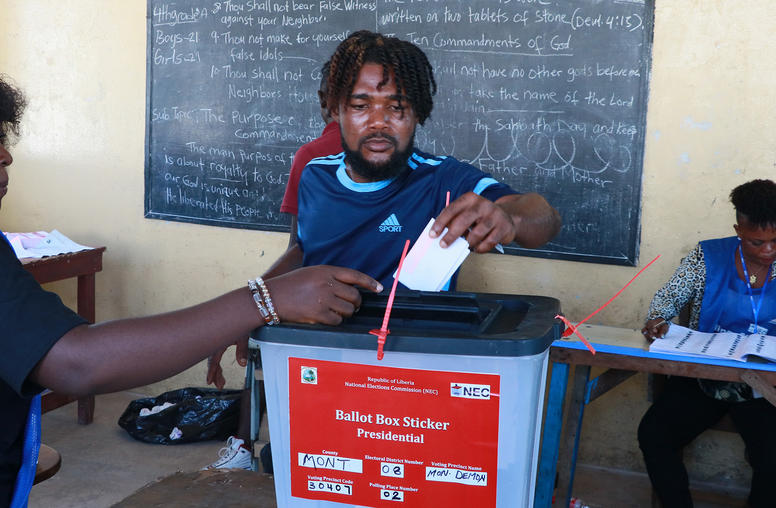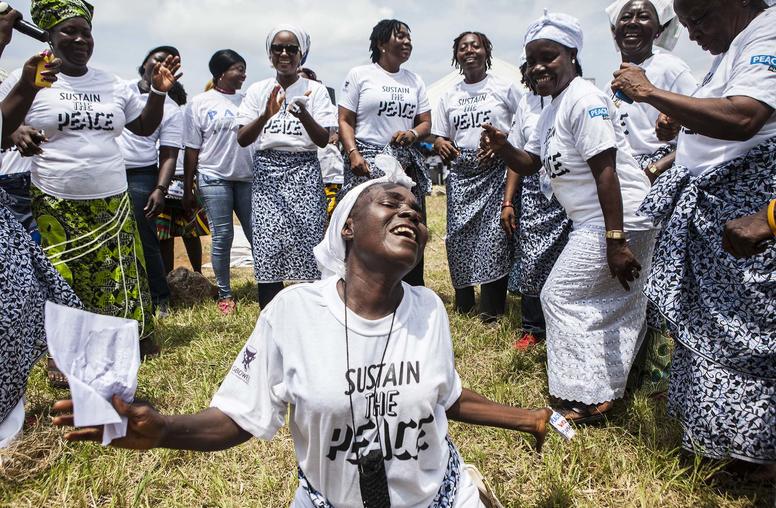Liberia: Through the Eyes of President Ellen Johnson Sirleaf, Africa’s First Elected Female Head of State
Liberian President Ellen Johnson Sirleaf made her third visit to USIP on Friday, June 24, 2011 for a speech that addressed key political, economic and social issues affecting her country and the region. Audio, Video and Photos are available on the event page.
Liberian President Ellen Johnson Sirleaf made her third visit to USIP on Friday, June 24, 2011 for a speech that addressed key political, economic and social issues affecting her country and the region - especially during this time of conflict in neighboring Cote d’Ivoire and in the run up to elections later this year. President Johnson Sirleaf examined opportunities that lie ahead and look back at lessons learned from Liberia's post-conflict experience. Her remarks explored options for expanding economic opportunities in Liberia's burgeoning private sector, implications of lingering instability in the sub-region and efforts to improve the efficacy of the country's justice system.
Featuring:
- Her Excellency Ellen Johnson Sirleaf
President of Liberia - Tara Sonenshine, Opening Remarks
Executive Vice President, USIP - Dr. Chester A. Crocker, Introduction
Member of the USIP Board of Directors and the James R. Schlesinger Professor of Strategic Studies at Georgetown University’s Walsh School of Foreign Service - Raymond Gilpin, Moderator
Director, Center for Sustainable Economies
See the slideshow in full screen
Explore Further
- Read the remarks by President Ellen Johnson Sirleaf
- Liberian President Optimistic on Country’s Outlook
News Feature by Gordon Lubold | June 2011 - Rule of Law in Liberia
Projects from USIP's Rule of Law Center of Innovation - Countries and Regions: Liberia
- View the Book Customary Justice and the Rule of Law in War Torn Societies
- View the USIP Peaceworks Looking for Justice with and Perceptions of Local Justice Options
Related Academy Courses
- Developing a Framework for Economic Reconstruction in Conflict Affected States
- Land, Property, and Conflict
- Advising and Mentoring in a Reform Environment


